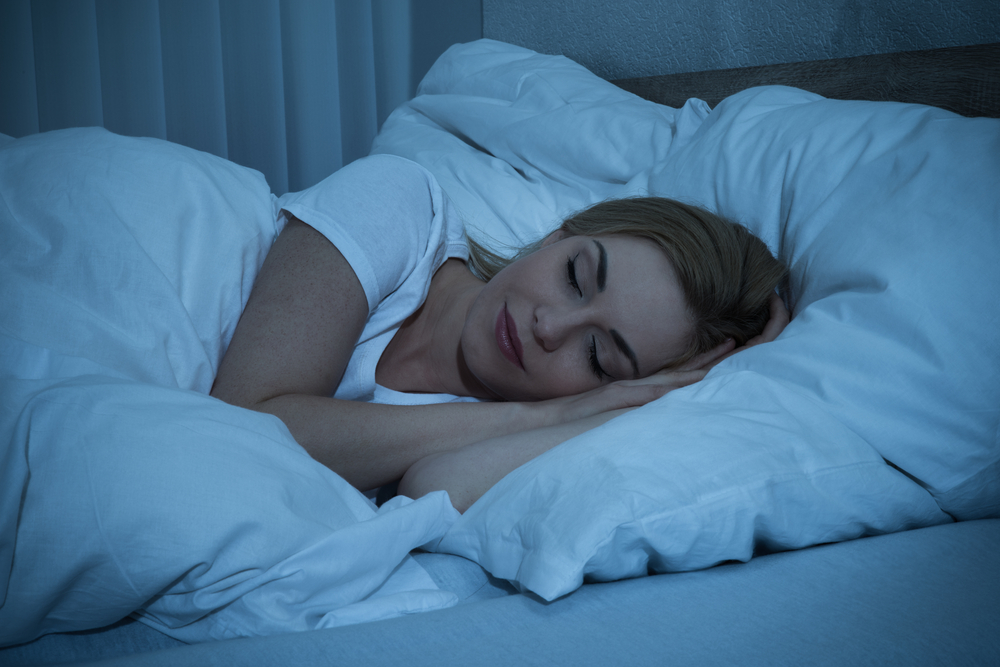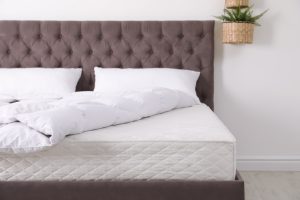Redesign Your Bedroom for a Better Night’s Sleep

No matter what the reason may be, there are a ton of ways to help improve your sleep. A great place to start is by redesigning your bedroom because this can have a huge impact on your nighttime slumber. See what alterations you can make to your room in order to achieve a better night’s rest and an even more revitalized day.
Change the Temperature
Do you ever feel like you can’t fall asleep because you’re too hot, or you wake up from a deep sleep sweating? Warmer temperatures do actually mess with your sleep and it can make it harder for the body to fall asleep.
Researchers have found that the optimal temperature for a good night’s rest can range from 60 to 72 degrees Fahrenheit. If you think the heat in your room is affecting the way you sleep, open up the windows when it gets cooler in the evening, use a fan, or even put your AC on a schedule throughout the night.
Is It Time for a New Mattress? 
Sometimes your mattress can become dull after many years or maybe it’s just not the right fit for you. A mattress plays a big role in the way you sleep and if it’s too hard or too soft, it can make it difficult to fall asleep comfortably.
Everyone prefers a different level of support when it comes to their bed, and each mattress can change the way a person sleeps if it’s the right fit. These various types you can try include:
- Memory foam: A long-lasting, soft material known for providing good support and excellent pressure relief as it molds to your body shape.
- Air bed: This is not the same as an inflatable air mattress, instead these are filled with air and upholstery instead of traditional spring.
- Innerspring: An innerspring mattress uses a steel coil support system covered in padding and upholstery.
Another factor that may affect your sleep at night is your bedding. Make sure you have soft, cool sheets and a comforter that feels nice against your skin to keep you cozy.
Block Out Any Outdoor Light or Sounds
When it’s time for bed, you also want to eliminate any distracting light that may shine into your room. A good way to get rid of unwanted light is to install blackout curtains on your windows or simply buy darker curtains with a thick fabric.
Additionally, if you live in a busy area, the outside sounds might keep you up at night or prevent you from getting into a deep sleep cycle. White noise or nature sounds help blur background noise and can create a calming environment for you to fall soundly asleep.
Turn Off Electronics Before Bed
Your phone screen or TV can have a huge impact on how you sleep throughout the night. A study found that the blue light emitted by screens suppresses the melatonin found in your body. Your phone or TV screen can also increase stress levels, keep your mind awake for a longer period of time, and sometimes generate negative thoughts. So, try to stop using your electronics at least 30 minutes before going to bed.
Ask a Professional
If these bedroom changes still don’t help your sleep cycle, you may be suffering from an underlying health issue that needs the diagnosis of a professional. Sleep-related disorders like insomnia or sleep apnea can be detrimental to your sleep quality and life, so it’s best to find help from a specialist right away.
Dr. Simmons can recommend either a polysomnogram (PSG) or a home sleep test (HST) if you believe you have sleep apnea, which determines if your breathing pattern is affecting sleep. Finding out about the symptoms of sleep apnea will help you receive the right treatment for your nighttime obstacles. Give Dr. Simmons a call at 818-300-0070 if you have questions about your sleep or snoring and to get scheduled for a consultation.


